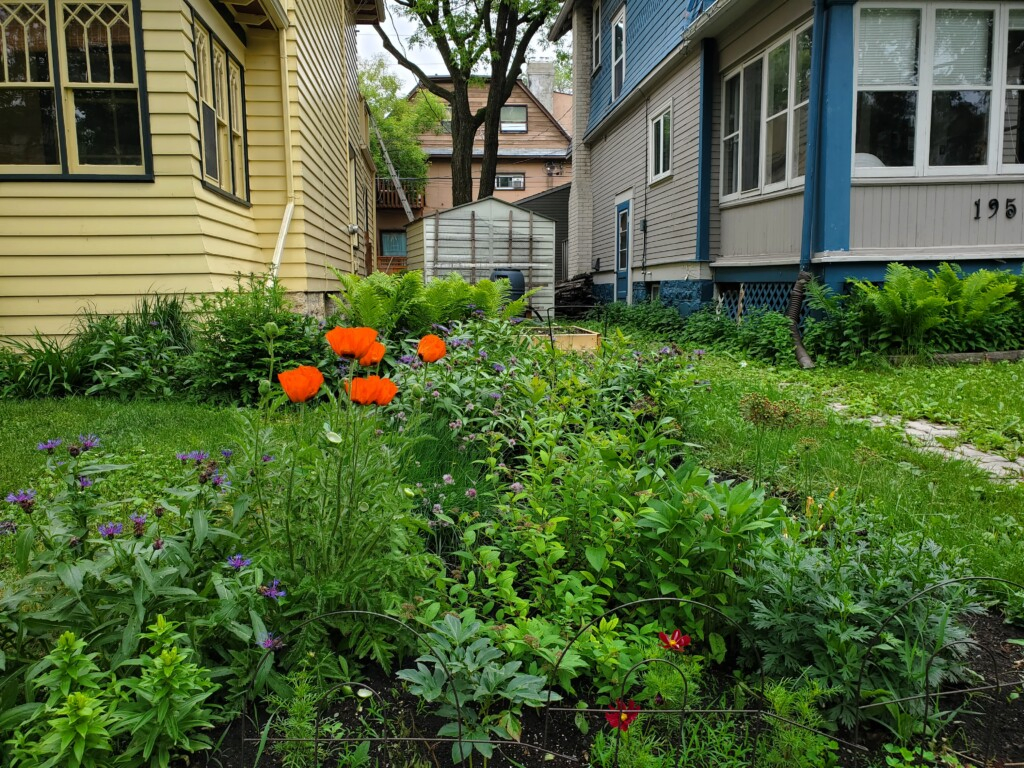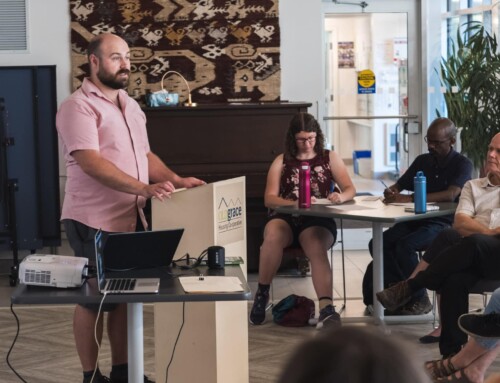Written by Zoe Matties, Manitoba Program Manager
When I give presentations on creation care in churches and schools I often hear people say, “Ok, I understand that creation care is important, but what can I do?” I find that people are looking for an easy answer, or a quick fix, such as “if you stop eating meat one day a week then the problem will be solved.” While eating less meat would certainly make a difference, I can’t boil it down to such a simple answer.
Pope Francis, in his widely read encyclical, Laudato Si, calls Christians and the church towards an “ecological conversion”. In using the word conversion, Pope Francis is invoking a religious term associated with a change from one way of being to another. In Biblical Greek, one of the words used to describe this change is metanoia, which is often translated as “repentance,” but it also denotes a fundamental transformation of one’s heart. So, we are being asked to turn away from a way of being that ignores others and creation, and towards a way of being that includes the flourishing of others and the earth.
One of the main ways I have found that helps me to cultivate this posture of metanoia is through the practice of paying attention. The poet Mary Oliver was an expert in the art of paying attention. She lived a profoundly simple life: she took long walks through the woods and along the shore nearly every day. Her poetry is filled with her experiences in the natural world, and her collected works can be thought of as an instruction manual for how to focus the gaze. She has written, “to pay attention, this is our endless and proper work.” In fact, her “instructions for living a life” were these: “pay attention, be astonished, tell about it.”
In Mary Oliver’s essay Upstream she wrote, “Attention is the beginning of devotion.” Can you hear the echoes of Jesus’ words from Matthew chapter 6? “Where your treasure is, there your heart will be also.” The truth of it is, that which is not noticed cannot possibly be loved. Paying attention in this age of distraction is a revolutionary action. It is an act that draws us out of ourselves, and out of business as usual thinking, and into the lives and experiences of others, human and non-human. In this time of upheaval, we are being asked to pay attention to both our human neighbours – those affected by oppression, and our non-human neighbours, those affected by pollution and climate change. The practice of paying attention invites us to reconsider our way of being in the world. It invites us to see the connections in all things, and it pushes us to see beyond our fear and sense of isolation.
This art of paying attention isn’t just something that comes to us one day, or that happens in passing. Like prayer, meditation, or learning a language, paying attention is something that we can become better at by practice.
 So where do we start? How do we practice paying attention in our lives? Since April I have been taking a photo of the same spot in my garden- trying to spot the changes each week. Each week there have been so many changes. I doubt I would have noticed how often things in my garden changed, if I hadn’t been intentionally paying attention. I have been cataloguing these changes on the A Rocha Manitoba instagram page under the hashtag #changingseasonsproject. This is one simple way that I have been trying to hone my skills of paying attention. I encourage you to take some time this month to practice paying attention.
So where do we start? How do we practice paying attention in our lives? Since April I have been taking a photo of the same spot in my garden- trying to spot the changes each week. Each week there have been so many changes. I doubt I would have noticed how often things in my garden changed, if I hadn’t been intentionally paying attention. I have been cataloguing these changes on the A Rocha Manitoba instagram page under the hashtag #changingseasonsproject. This is one simple way that I have been trying to hone my skills of paying attention. I encourage you to take some time this month to practice paying attention.
My advice is to pick a time and a place, even the park around the corner from your house, and make it a holy space for you. You could start with these questions: What do you see there? What creatures and plants share that space with you? How does it change over the course of the seasons? Does what you are noticing tell you anything about God? How is paying attention changing your point of view or transforming your heart?
Praying
It doesn’t have to be
the blue iris, it could be
weeds in a vacant lot, or a few
small stones; just
pay attention, then patch
a few words together and don’t try
to make them elaborate, this isn’t
a contest but the doorway
into thanks, and a silence in which
another voice may speak.
– Mary Oliver
Share with us!
Share a photo of what you noticed on social media with the hashtag #changingseasonsproject and tag us @arochamanitoba.






